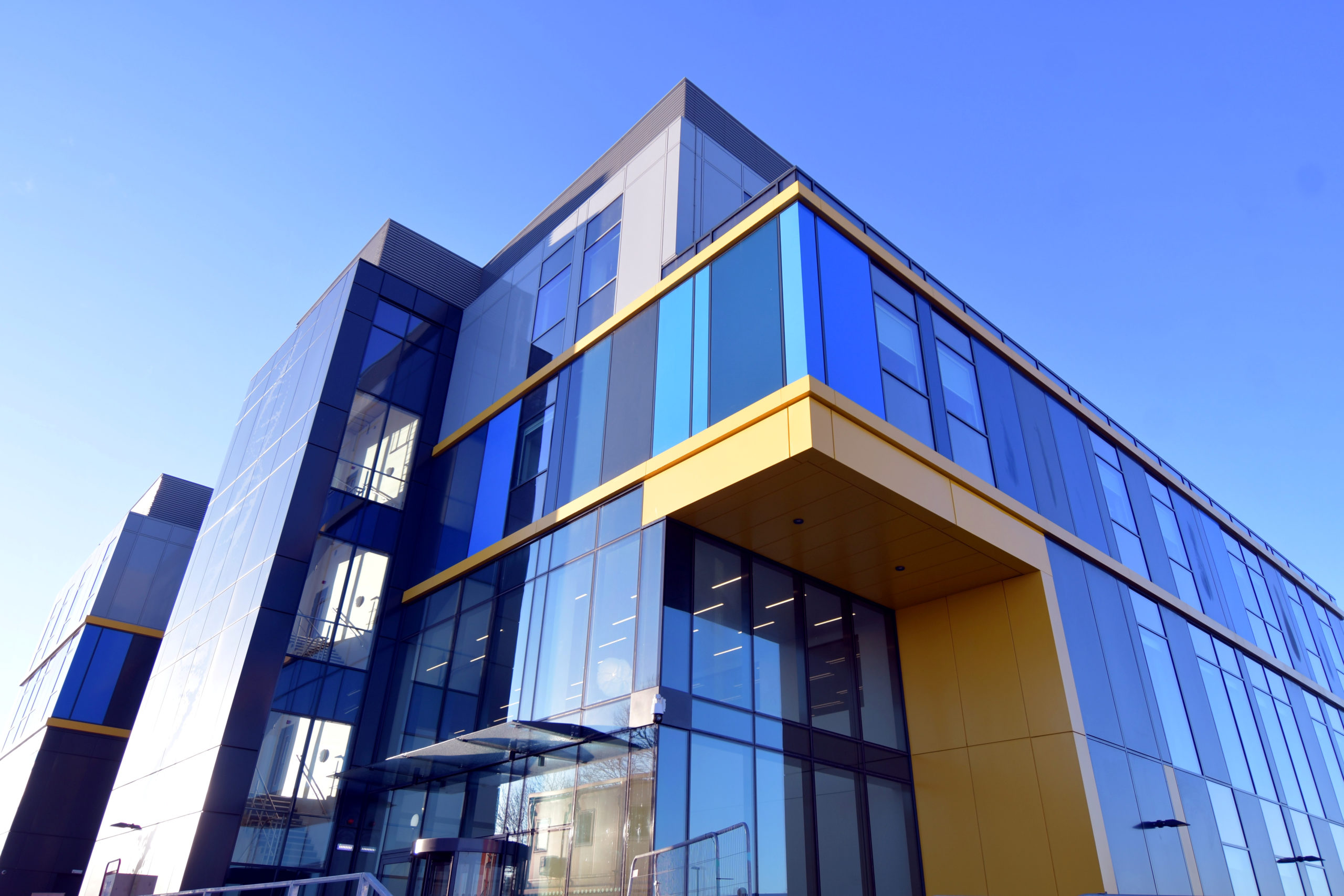
Rosalind Franklin Institute at Harwell reaches key construction milestone
The £40m Hub building which will house The Rosalind Franklin Institute on the Harwell Science and Innovation Campus has reached practical completion, with the construction company Mace handing legal ownership to UK Research and Innovation. The Franklin will now commence specialist scientific fit out.
The Franklin, funded through UK Research and Innovation’s Engineering and Physical Sciences Research Council, is dedicated to creating technologies which will change the way researchers see life. These technologies will be housed in the Hub at Harwell alongside 200 researchers, including collaborators from academia and industry.
The Hub has been delivered on time and on budget by Mace, working in partnership with AECOM, The Science and Technology Facilities Council, and the Franklin. The design and build project commenced in 2018, breaking ground in May 2019, and topping out in November 2019. Researchers will occupy the Hub as soon as the laboratory fit out and installation of research equipment completes.
Professor James Naismith, Director of The Franklin said “This is a building created by scientists for cutting edge research, and we are looking forward to continuing to deliver impact for the UK. The Hub shows that it is possible to deliver a highly functional science building that is on budget, on time, energy efficient, a record breaker in space utilisation, and visually inspiring. This achievement, despite the pandemic, is entirely to the credit of the exceptional team work of MACE, AECOM, STFC and Franklin staff. Our scientists coming together in the building for the first time will deliver scientific firsts impacting across the UK nations. By doing so we will honour the legacy of our namesake Rosalind Franklin and try to be worthy of bearing her name.”
The design and construction teams at Mace worked closely with Franklin research teams to create a lab environment which is capable of supporting some of the world’s most sensitive research equipment. The Hub’s suites for electron microscopy are one of the most electromagnetically stable spaces on the planet, with stainless steel shielding and piled foundations creating ideal research conditions. The over 50 fume hoods, enabling next generation chemistry, requires miles of ducting. Despite mixing such different technologies, there is not a square metre of wasted space – the Hub is one of the most space efficient research buildings in the UK.
Terry Spraggett, Managing Director of Public Sector Construction at Mace said: ‘’We are proud to successfully handover such an ambitious and unique project under quite challenging circumstances. We brought together a multi-disciplinary team, who really pushed the boundaries to support the Rosalind Franklin Institute’s vision and create a world class science facility that will spearhead innovation. We look forward to continuing our work across the campus delivering exceptional science spaces.”
Specialist labs for imaging, mass spectrometry, structural biology and chemistry have been designed to promote collaboration, while prioritising efficiency in space utilisation. Research already underway at The Franklin on the Harwell Campus and in spokes around the UK has led to the development of nanobodies against SARS-CoV-2, breakthroughs in imaging biological samples using electrons, and the development of chemistry techniques which can enable proteins to be modified within cells.
EPSRC Executive Chair, Professor Dame Lynn Gladden said: ‘The Franklin Hub will provide an important focus within the research landscape, helping the UK to maintain a leading position in the application of novel understanding in engineering and physical sciences to transform life sciences through interdisciplinary research and technology development.’
Commenting on this latest Institute milestone, STFC Executive Chair Professor Mark Thomson said “In recent years STFC’s health technology cluster here at Harwell has gone from strength to strength and the Rosalind Franklin Institute will become an essential element in that growing health technology ecosystem. Today’s announcement brings us a big step closer to the Franklin becoming operational and we look forward to supporting them in finding answers to the great life sciences challenges of the day”.
Richard Mann, AECOM’s Healthcare and Science Leader, UK & Ireland said “Our project and cost management teams are proud to have supported the delivery of the Rosalind Franklin Institute whose work will have global impact. The spirit of collaboration adopted by the wider project team, despite the challenges and impact imposed by the pandemic, has undoubtedly been critical for delivery on time and on budget. We are delighted to continue our track record in delivering complex research facilities across the Harwell Science and Innovation Campus.”